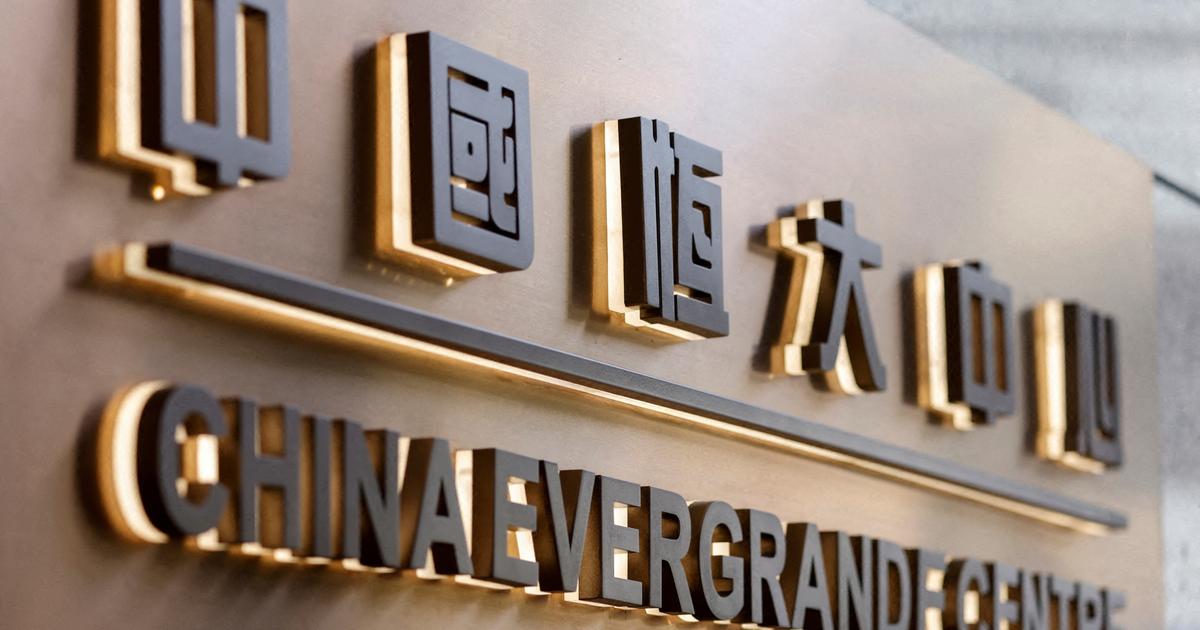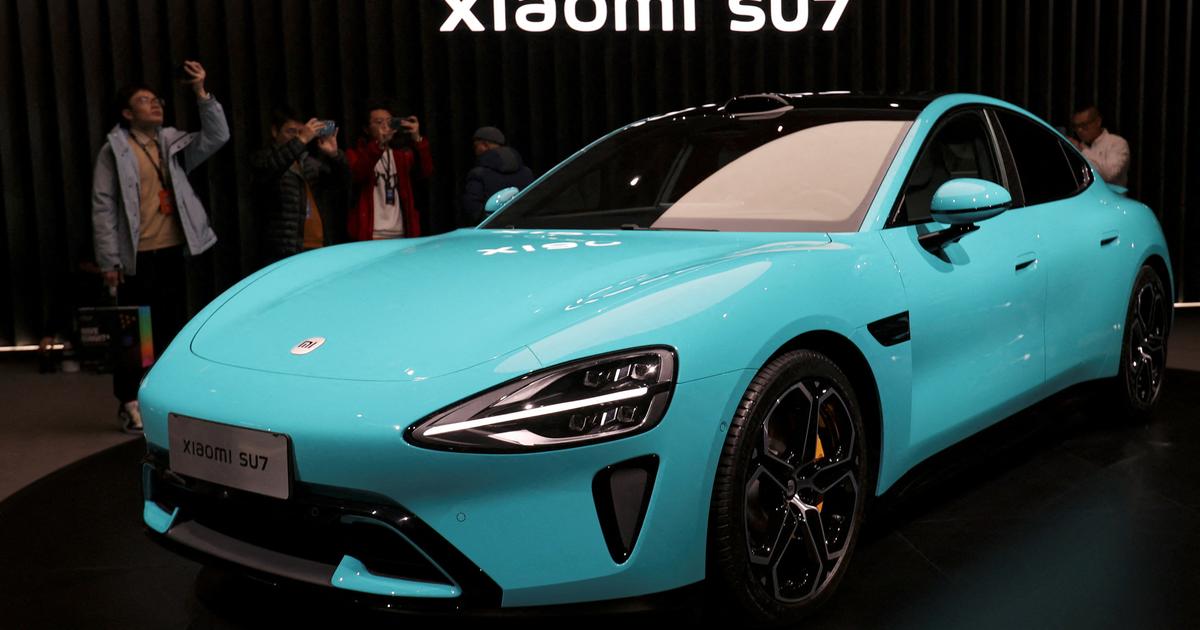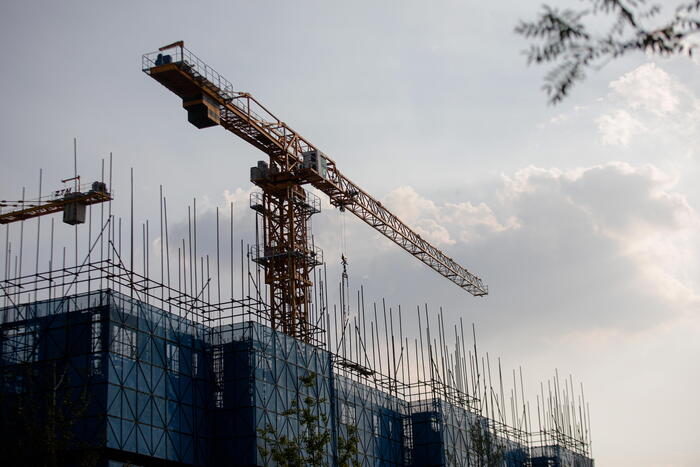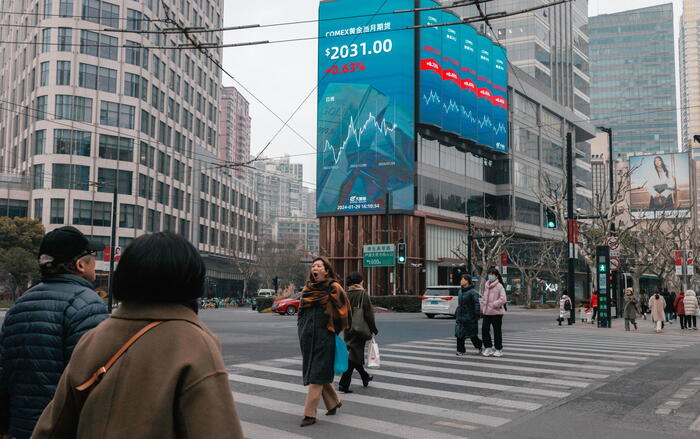The liquidity crisis of Evergrande, one of the main real estate companies in China and the most indebted developer in the world, is deteriorating rapidly.
The Asian stock markets collapsed on Monday due to the fear of a bankruptcy of the company that could drag the sector in China and even throughout Asia.
The Shenzhen-based giant faces millionaire interest payments this week and analysts fear it will not be able to meet them.
Markets fear that if Beijing does not intervene, Evergrande's difficulties could unleash a wave of bankruptcies and contaminate the financial sector, which has pumped loans to companies and buyers.
More information
Investing in China becomes a trap
Giant Evergrande acknowledges default risk and threatens China's financial stability
The world's most indebted real estate company, China's Evergrande, collapses
Evergrande, which officially accumulates debts worth more than 300,000 million dollars (about 255,000 million euros) - 2% of Chinese GDP, or the size of the entire South African economy - must pay interest to the value of 84 on Thursday million dollars (71.6 million euros) of its
offshore
bonds
, and another 47.5 million (about 40 million euros) next Wednesday 29. On a festive day on the mainland Chinese stock exchanges, the company's price fell 10% on Monday in the Hong Kong markets, to stay at its lowest level in the last 11 years. The Hang Seng Real Estate Index fell about 7% to its lowest value since 2016, while the Hong Kong stock market general index closed at annual lows. The losses were replicated hours later in the European and North American markets, which turned red.
The firm, founded in 1996 and become a symbol of the excesses of the Chinese housing bubble, grew disproportionately in the boom years of the first two decades of this century. Its business model took advantage of easy credit to build with borrowed money - from banks, its suppliers, its clients and even its employees - buildings that it sold before they were finished. With that money he executed new projects.
The model allowed it to expand into numerous sectors, from finance through a wealth management unit to electric vehicles to soccer.
But last year it began to run into difficulties, as a result of a series of measures taken by regulators to avoid alarming levels of debt in the Chinese economy, and in the real estate sector in particular: this industry accumulates five trillion dollars of indebtedness (4.26 billion euros).
Among other measures, companies can no longer resort to pre-selling their promotions, which has led to serious liquidity problems for Evergrande.
According to
Caixin
magazine
The group has about 800 projects under construction, half of which have come to a halt due to cash shortages. It has launched a plan to divest and sell its promotions at discounted prices in order to gain liquidity, while trying to renegotiate the terms for the repayment of debt to its creditors. But protests from suppliers or small housing investors clamoring for their money have become almost a daily occurrence at their Shenzhen headquarters. A banker whose entity is a major Evergrande creditor has told Caixin that there is a "99.99%" chance that the developer will not be able to meet the interest on its debt in the third quarter. So far this year, the company's shares have lost around 90% of their value,and the credit rating agencies have relegated their credit to the junk bond category.
A staff of 200,000 workers
Now, homebuyers who advanced deposits to buy one of the apartments Evergrande was building face the possibility that their floors will never be finished.
Contractors and suppliers risk not being able to receive payments for services rendered, which in turn can lead to a liquidity crisis that endangers their very livelihoods.
In turn, the banks and other entities that provided loans to the company may not receive the money it owes them, which could have serious consequences for the entire financial system: about 300 firms are creditors of loans disbursed to Evergrande.
A bankruptcy of the real estate could cause a rise in credit, among other issues.
One of the great unknowns, for the moment, is whether the Chinese government will consider coming to the rescue of the giant, which employs 200,000 people directly and on which another 3.8 million jobs depend indirectly. Or if it will leave Evergrande to fate, as a kind of warning to sailors in a Chinese economy where accumulated debt is one of the big problems. The director of the nationalist ideology newspaper
Global Times
, Hu Xijin, has written on his personal blog that Evergrande should not bet on a government bailout, but rather resort to market mechanisms to prevent its collapse. But others do not think the same.
“We suspect that the authorities will intervene, but they will opt for an organized restructuring rather than a rescue. Most likely, something like this would help affected home buyers, while private creditors would have to bear some costs, "considers the consultancy Capital Economics in a note. "Given how bloated the real estate development industry is, there could be a whole wave of bankruptcies just around the corner, which would have the potential to precipitate a 'hard landing.' But at that point, you can probably count on state measures to prevent a credit crunch in China - for all its flaws, this is one of the advantages of having a tightly controlled financial system, rather than a freer market system. ”, Adds the consultant.

/cloudfront-eu-central-1.images.arcpublishing.com/prisa/LSUFMKRYUPVSMYHVDITYI4QOHY.jpg)







/cloudfront-eu-central-1.images.arcpublishing.com/prisa/R5YJ3MNWQRCGTFO4MKHLQKANJI.jpg)